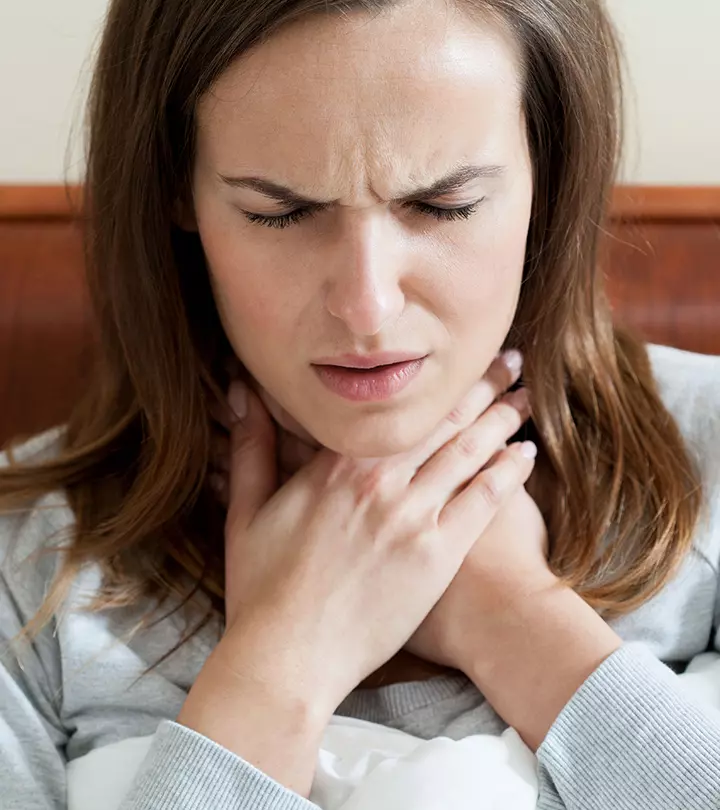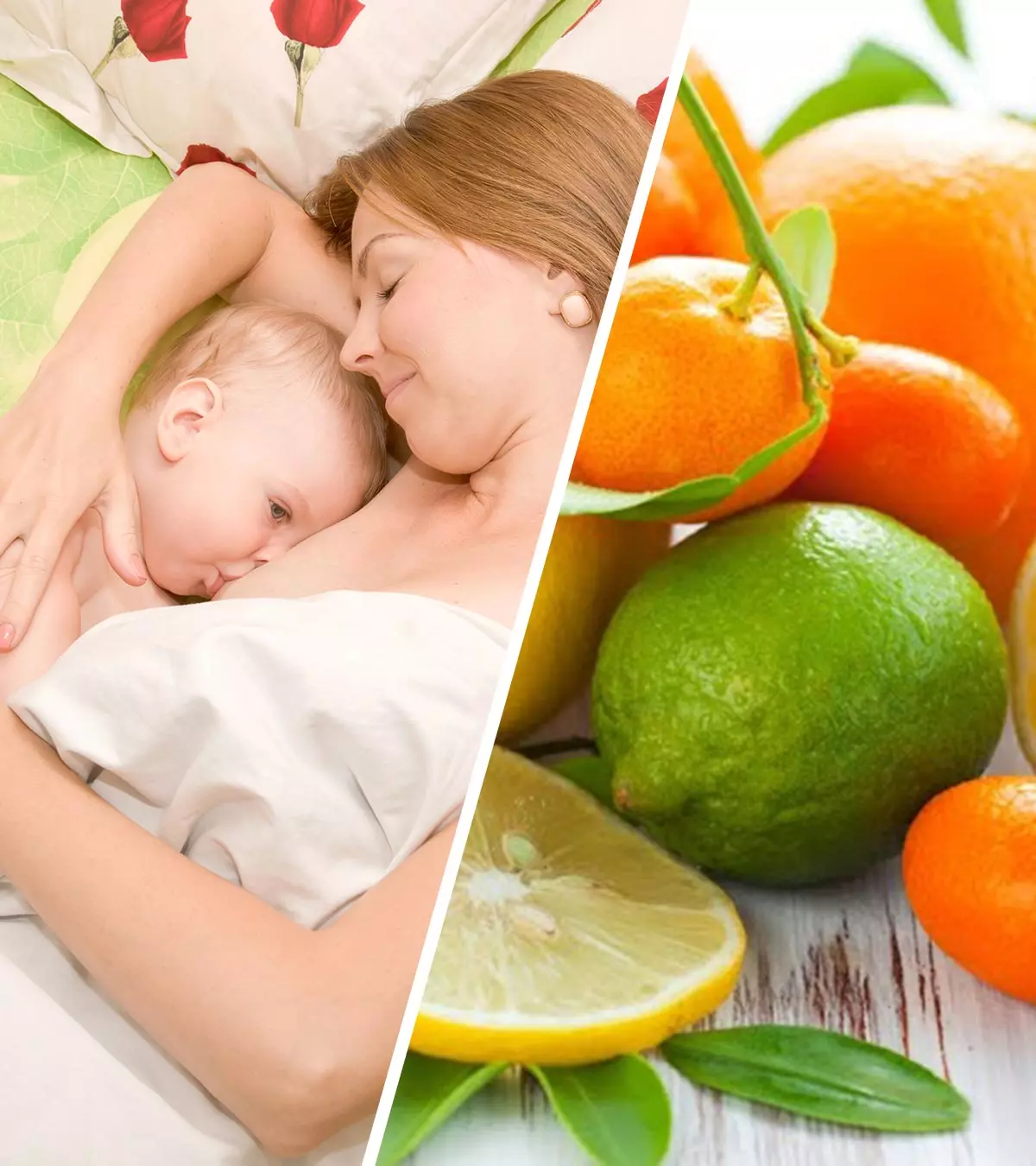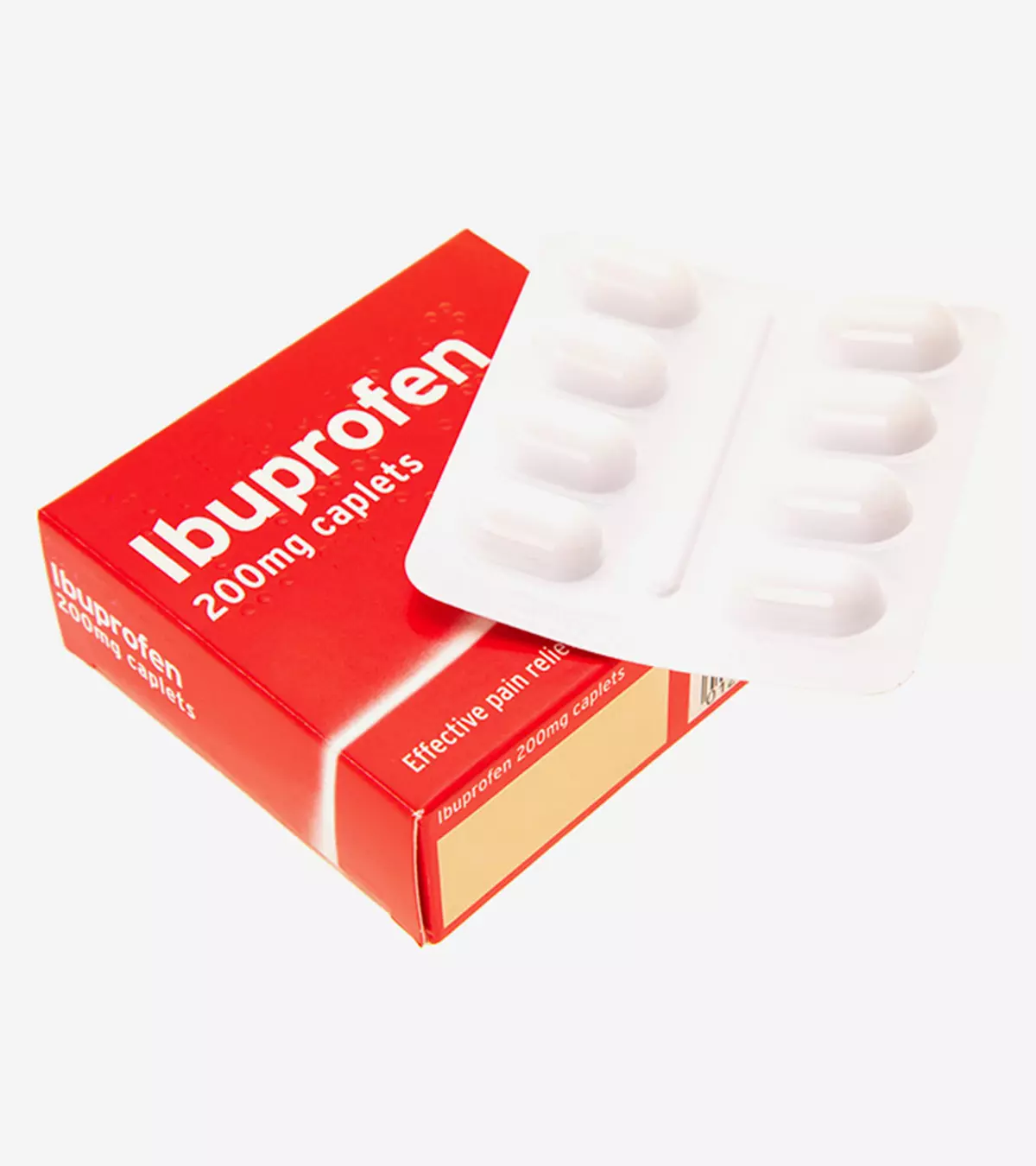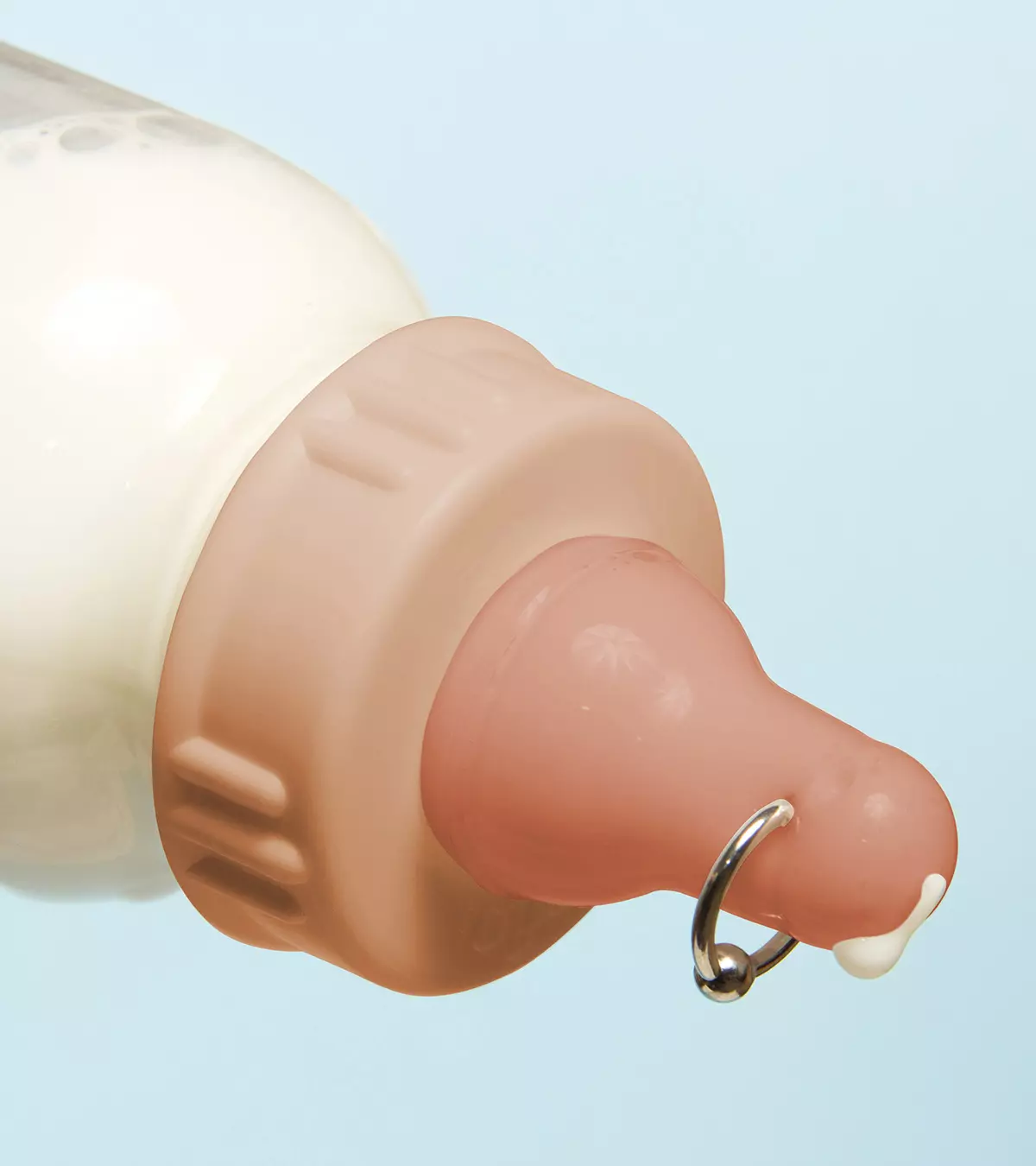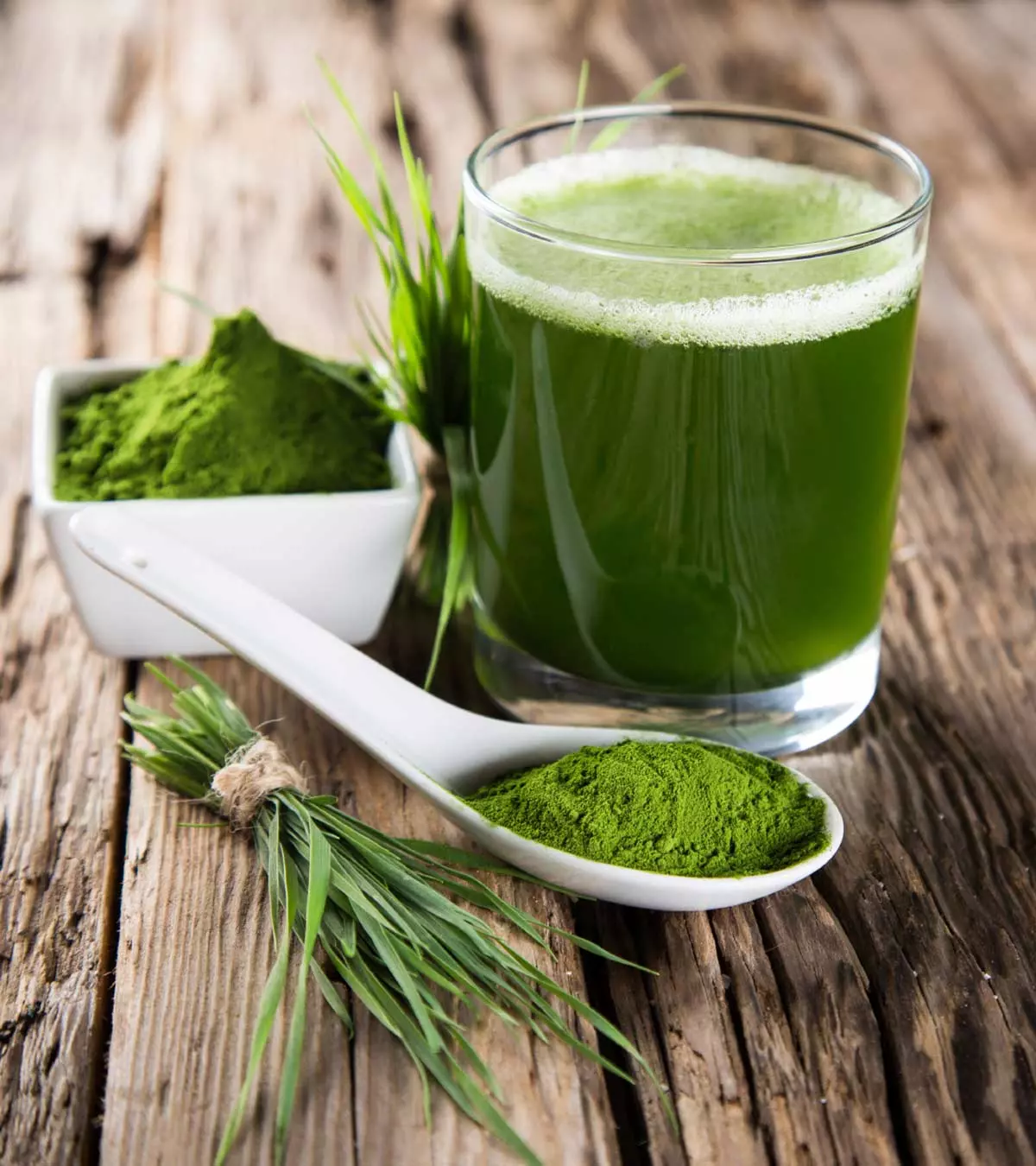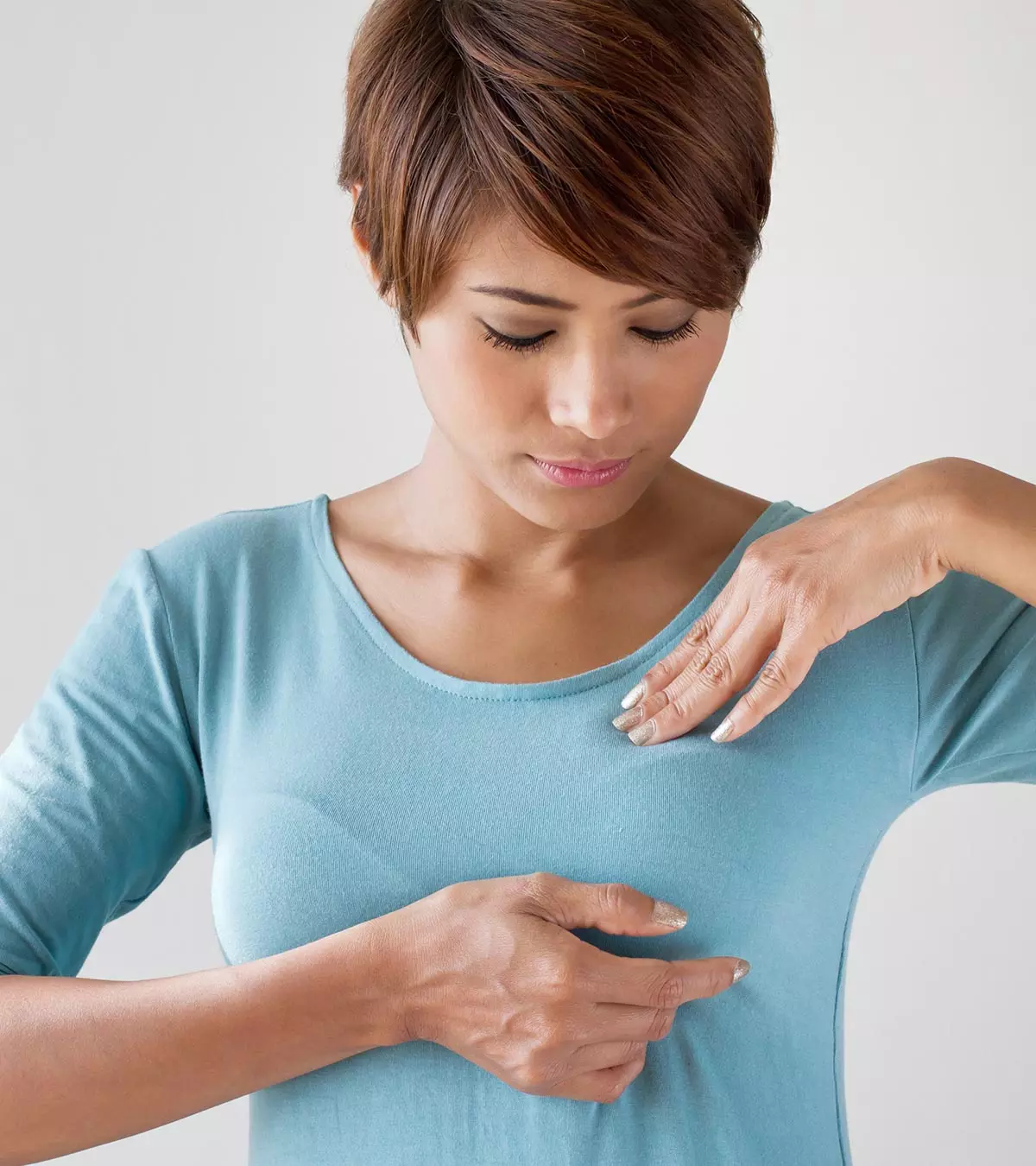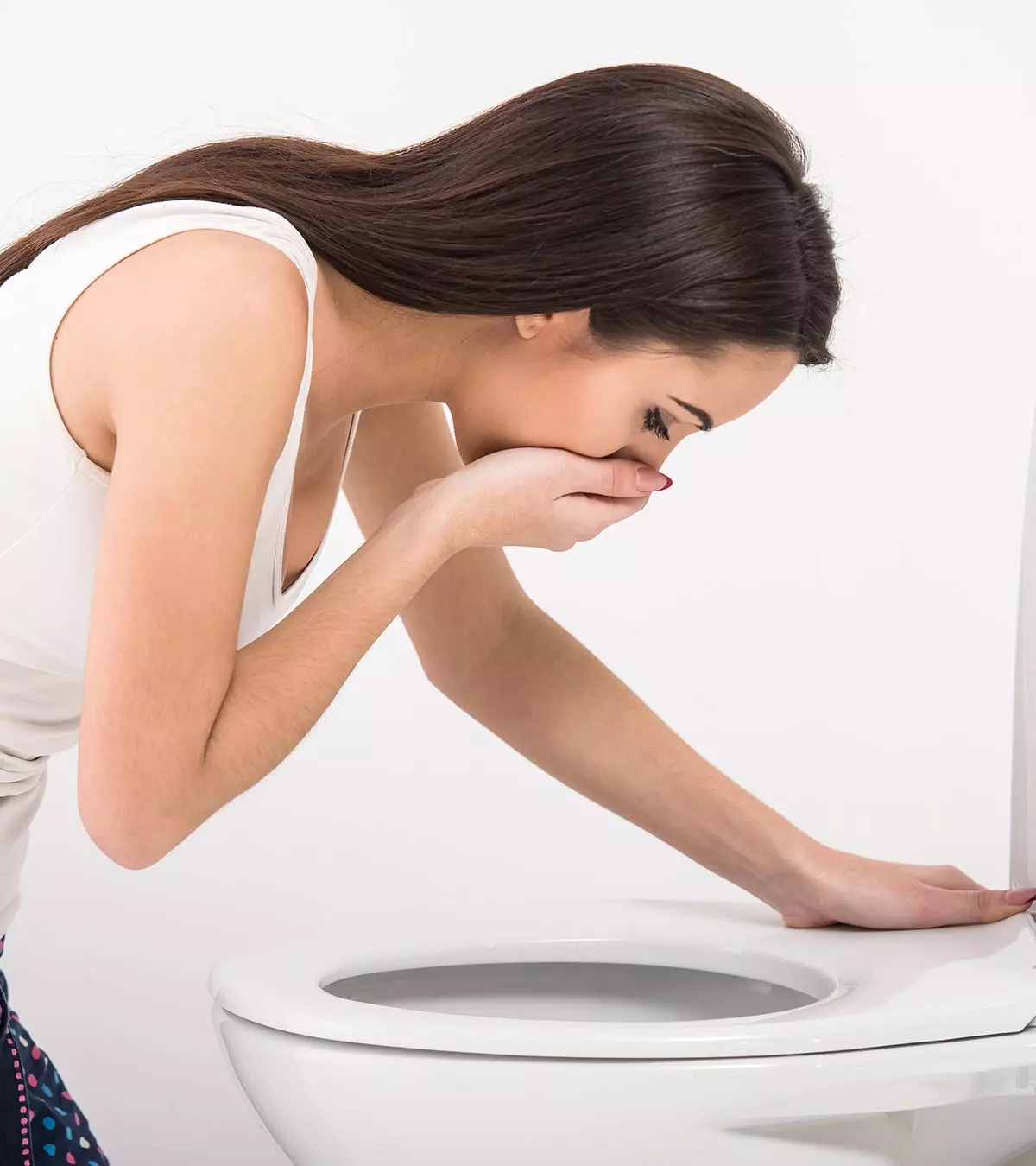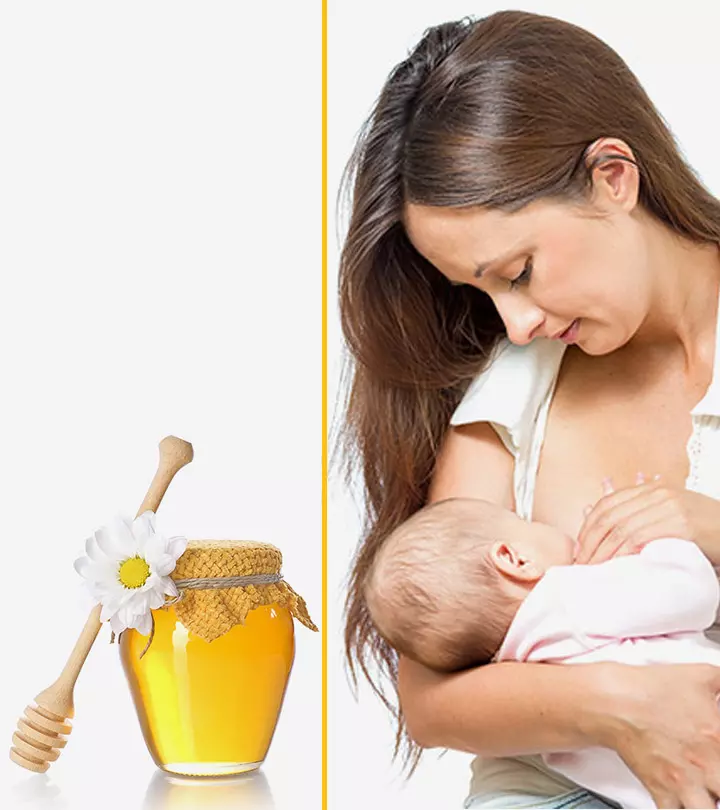
Image: ShutterStock

During breastfeeding, most of us are in a dilemma regarding what foods are safe and unsafe for nursing mothers. Including honey while breastfeeding is one such topic of discussion. Although babies who are less than a year old are not given honey directly as it might increase the chances of infant botulism, it is safe to be consumed by the mother. Honey contains high levels of fructoseiA sweetener naturally present in fruits, honey, and vegetables. and glucose, important for giving stamina to the breastfeeding mother. It is also known to be rich in antioxidantsiSubstances that may prevent or slow down some types of cell damage caused due to harmful molecules called free radicals. and antibacterial properties that help in strengthening the immune system. Read about the safety of having honey while breastfeeding, its benefits, and possible side effects.
Key Pointers
- Honey is beneficial for pregnant women due to its fructose and glucose content, providing energy.
- Pregnant women should consume only pasteurized honey to prevent the risk of botulism.
- Nursing mothers should take precautions when consuming honey, such as washing hands, checking labels, choosing pasteurized honey, consuming in moderation, and consulting a doctor.
- Honey offers various health benefits to breastfeeding mothers, including boosting the immune system and treating wounds and gastrointestinal disorders.
- People prone to pollen or bee-related allergies should avoid consuming honey.
Is It Safe To Have Honey While Breastfeeding?

Image: Shutterstock
Yes, a nursing mother can eat good quality pasteurizediThe act of killing germs by heating a product to a specific temperature for a specified time. honey. However, it is good to avoid raw honey, which has high chances of containing spores of Clostridium botulinumiA bacteria that creates toxic substances when exposed to low oxygen levels. which may adversely affect maternal health.
Since the botulism spores are killed in the gastrointestinal tract of the mother, they would not enter into the bloodstream or make their way into the breast milk. Moreover, the spores are too big to pass into the mother’s milk and even the botulinum toxin does not pass into breast milk (1). Rest assured, breast milk is certainly not a source of the toxin or the bacterial spores causing infant botulism.
Unlike adults, babies’ immature digestive system lacks enough acidity in the stomach to kill botulism causing bacteria. If the baby happens to ingest raw honey containing botulism spores, they may colonize in his large intestine to produce botulinum neurotoxiniA muscle-paralyzing toxin that affects the nervous system. leading to infant botulism.
While you cannot give honey directly to a baby less than 6 months of age, consumption during motherhood does not pose any risk to the infant.
Is It Possible To Remove Botulinum Spores While Processing Honey?
No. Botulinum spores are heat-resistant and can thrive in anaerobic conditions. Even if the honey is processed carefully and is given thermal treatment, some botulinum spores naturally present in honey may remain (2) (3).
Is It Safe To Apply Medical-Grade Honey To Nipple While Breastfeeding?
Honey has been found to heal discomforts such as sore and cracked nipples. In particular, medical-grade honey, MediHoney, or medical-grade Manuka honey is made of 100% honey with no additives. You may consider this honey as a natural ointment to soothe cracked or sore nipples. However, as a precaution, clean the honey from the nipples using a warm, wet washcloth before breastfeeding to prevent the baby from accidentally ingesting honey (4).
Precautions To Be Taken While Eating Honey During Breastfeeding
If you are a nursing mother and have a habit of taking honey regularly, you may continue doing so, but follow these precautions:
- Make it a practice to wash your hands thoroughly to rule out the chance of botulism spores possibly stuck on your hands and fingers, to avoid passing them on to the baby.
- Check the manufacturing and expiry dates before you buy a bottle of honey.
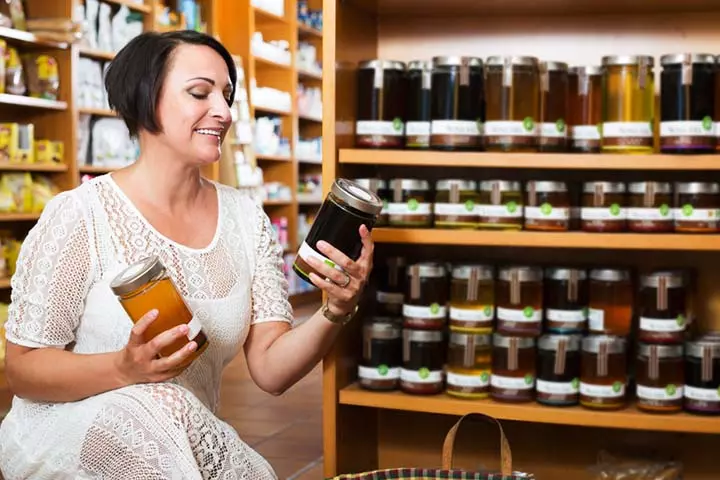
Image: Shutterstock
- Choose a good quality honey that is well-processed and pasteurized.
- Consume in moderate amounts.
- Discuss with your doctor regarding the honey types and the one that best suits your needs.
 Did you know?
Did you know?Benefits of Honey To A Breastfeeding Mother

Image: Shutterstock
Honey, one of the oldest sweeteners on earth, offers numerous health benefits due to its nutritional composition and various bioactive compounds. While the composition of honey varies based on its floral source and geographic location, it typically consists of mono and disaccharide sugars, water, enzymes, minerals, vitamins, and amino acids. It also contains flavonoids and phenolic compounds. The accompanying graph presents the percentage composition of these nutrients in honey.

Composition of honey
Source: The immunomodulatory effects of honey and associated flavonoids in cancer; NutrientsHoney is one of the oldest natural sweeteners on earth with several health benefits.
- It is a healthy sweetener.
- It adds to the overall nutrition as it contains iron and small amounts of calcium, folate, vitamins C and B.
- Locally made honey may even help boost a mother’s immunity.
- It is helpful in treating wounds, diabetic ulcers, and other gastrointestinal disorders.
- Can treat colitisiSwelling of the lining of the large intestine. , cold symptoms, and sore throat.
- Prevents cancer and heart diseases.
 Research finds
Research findsWhen Should A Nursing Mother Avoid Honey?
There is a lack of scientific evidence suggesting the side effects of consuming honey while pregnant or during lactation. In general, it is good to avoid honey if you are sensitive to pollen, celery, or other bee-related allergies. Also, avoid honey extracted from plants belonging to the Rhododendron genus due to potential toxicity. Caution is advised in people with diabetes or low blood sugar. Talk to your doctor before adding honey to your diet.
Frequently Asked Questions
1. Can I have honey and cinnamon drink during breastfeeding?
In most cases, honey and cinnamon drink is safe for nursing mothers. But, talk to your doctor before adding it to your diet. You may even drink honey lemon water during breastfeeding.
2. Is ginger and honey tea good for nursing mothers?
Yes, tea made with honey and ginger is good when breastfeeding as it soothes and relieves symptoms of cold. Ginger offers relief from breathing issues and a cough besides enhancing the flow of milk. Honey soothes a sore throat. These natural ingredients are safe for the baby as well. However, if you notice a rash, fussiness or diarrhea soon after nursing, it may be an indication that your newborn baby is sensitive to honey or ginger.
3. Can I have manuka honey during breastfeeding?
Manuka honey is produced from the nectar of the manuka tree in Australia and New Zealand. This monofloral honey is usually a part of several home remedies and is fine to consume while nursing.
In fact, it is safer than other traditional treatments for allergies. But do not use it on nipples as an antibacterial cream to avoid being ingested by the baby.
4. Can spores be removed during the processing of honey?
Processing of honey cannot remove botulinum spores and even the consumers cannot detect them.
5. Can honey increase milk production?
Mary Sabat, a nutritionist from Alpharetta, Georgia, says, “Honey is not necessarily beneficial for milk production, but it is a source of carbohydrates. So, it provides energy for lactating mothers to help maintain their physical activity level.”
6. What are some alternative sweeteners to honey when breastfeeding?
Breastfeeding mothers may use jaggery or maple syrup as an alternative to honey. Besides being a sweetening agent, jaggery may contain essential amino acids, antioxidants, and minerals such as calcium, phosphorus, iron, and vitamins, which may be beneficial for lactating mothers (7).
You can consume honey while breastfeeding as long as it is hygienically extracted. However, make sure to avoid the consumption of raw honey. Refer to the package instructions and purchase pasteurized and properly stored honey. You must also check the expiry date before the purchase. Similarly, if you are allergic to honey, it is best to avoid consuming it. If you have any queries regarding its consumption, consult your medical professional or a dietitian.
Infographic: Benefits Of Honey To A Breastfeeding Mother
Honey could be a great choice if you are looking for alternatives to sugar after pregnancy. Besides adding great flavor to your meal, it is also beneficial for your health while breastfeeding. Scour through the infographic below to learn the possible advantages of sweet, golden-colored liquid in lactating mothers.
Some thing wrong with infographic shortcode. please verify shortcode syntaxIllustration: Is It Safe To Eat Honey While Breastfeeding?
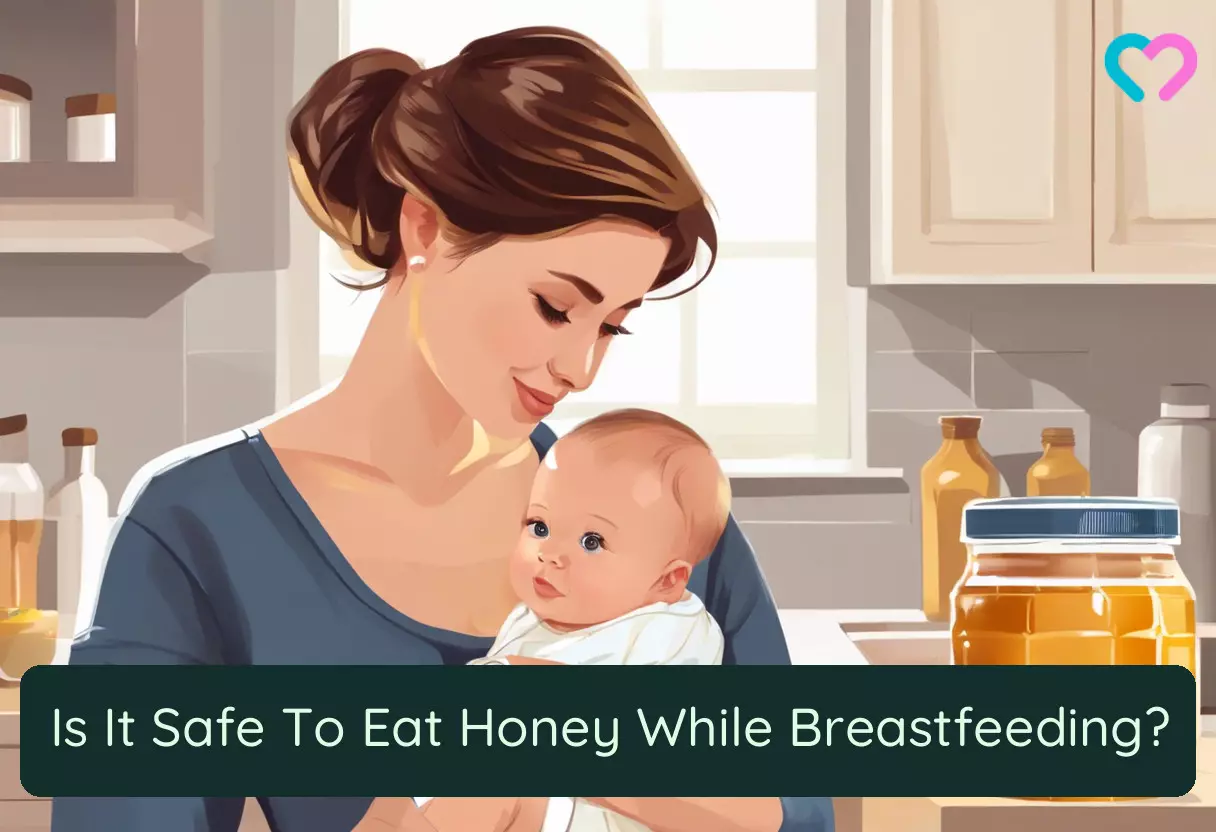
Image: Stable Diffusion/MomJunction Design Team
References
- Frequently Asked Questions (FAQs) about Infant Botulism.
https://www.infantbotulism.org/general/faq.php - Alejandro Dacal-Gutiérrez et al.; (2025); Inactivation of Clostridium Spores in Honey with Supercritical CO2 and in Combination with Essential Oils.
https://www.mdpi.com/2227-9717/10/11/2232 - Botulism.
https://www.who.int/news-room/fact-sheets/detail/botulism
- Manuka Honey for Nipple Damage.
https://lalactation.com/manuka-honey-for-nipple-damage/ - Honey Purity Test.
https://www.unomaha.edu/academic-affairs/ne-stem-for-u/ne-stem-4u-activities/biology—honey-purity-test.pdf - Maryam Firouzabadi et al.; (2025); Comparing the Effects of Yarrow Honey and Breast Milk for Healing Nipple Fissure.
https://www.ncbi.nlm.nih.gov/pmc/articles/PMC7494169/ - Razan J. Masad et al.;(2025); The Immunomodulatory Effects of Honey and Associated Flavonoids in Cancer.
https://www.mdpi.com/2072-6643/13/4/1269
Community Experiences
Join the conversation and become a part of our nurturing community! Share your stories, experiences, and insights to connect with fellow parents.
Read full bio of Dr. Priya Shashank
- Mary Sabat is certified in personal training by the American Council of Exercise (ACE) and has 30 years experience as a fitness trainer, diet planner, and holistic health coach. She did her BS in Dietetics and Nutrition at University of Delaware and MS in Human Nutrition with an emphasis on Exercise Science, at Rutger’s University.
 Mary Sabat is certified in personal training by the American Council of Exercise (ACE) and has 30 years experience as a fitness trainer, diet planner, and holistic health coach. She did her BS in Dietetics and Nutrition at University of Delaware and MS in Human Nutrition with an emphasis on Exercise Science, at Rutger’s University.
Mary Sabat is certified in personal training by the American Council of Exercise (ACE) and has 30 years experience as a fitness trainer, diet planner, and holistic health coach. She did her BS in Dietetics and Nutrition at University of Delaware and MS in Human Nutrition with an emphasis on Exercise Science, at Rutger’s University.
Read full bio of Swati Patwal
Read full bio of Rohit Garoo
Read full bio of Shinta Liz Sunny






